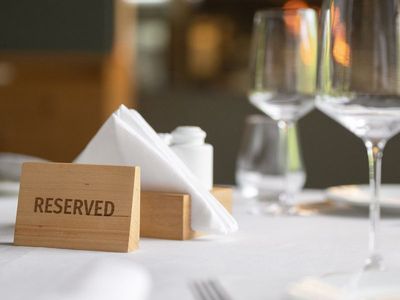Why That Ice Cube Argument With Your Brother Reveals Everything About Your Family (And You)
It starts with an ice cube. Your brother drops it into his wine glass with a satisfying clink, and suddenly you're having feelings about it. Strong feelings. You find yourself saying things like "you shouldn't do that" with the kind of conviction usually reserved for matters of national importance.
Welcome to the bizarre world of family dynamics, where a piece of frozen water becomes a battlefield for everything you've never said about who you are, what you value, and how you see the world.
Why We Care So Much About Things That Don't Matter
Psychologists call this the "90-10 rule" of conflict: only 10% of our arguments are actually about the thing we're arguing about, while 90% stem from deeper, unspoken tensions. That ice cube? It's not really about the ice cube.
When your family member violates an unspoken rule—like "proper" wine etiquette—your brain doesn't just register a minor disagreement. It triggers a cascade of meaning-making that reveals:
- Your identity markers: "I'm the kind of person who respects traditions"
- Your values hierarchy: "Doing things the 'right' way matters more than convenience"
- Your family role: "I'm the one who maintains standards around here"
- Your attachment style: "When you ignore the rules I care about, I feel unseen"
The Unspoken Rules That Rule Us
Every family operates on a complex web of invisible agreements. Some are universal (don't steal money from each other), but most are weirdly specific and utterly arbitrary:
- How you load the dishwasher
- Whether you put ketchup on eggs
- The acceptable volume for morning conversations
- Whether ice belongs in wine
These micro-rules feel important because they represent something bigger: belonging. When someone breaks a rule you didn't even know you had, it creates a moment of existential confusion. Wait, are we not the same kind of people?
The Wine War: A Case Study in Values Clash
Let's decode what's really happening in the Great Ice Cube Debate:
Team Anti-Ice might represent:
- Respect for tradition and "proper" ways of doing things
- Belief that some pleasures shouldn't be rushed
- Value placed on doing things "the right way" even if it's less convenient
- Identity tied to sophistication or cultural knowledge
Team Pro-Ice might represent:
- Practicality over tradition
- Personal comfort over social expectations
- Rejection of arbitrary rules that don't serve a real purpose
- Value placed on accessibility and ease
Neither side is wrong, but both sides are revealing something profound about how they move through the world.
When Trivial Becomes Tribal
The most fascinating part? How quickly we escalate. What starts as a casual observation ("That's weird") becomes a position ("You shouldn't do that") becomes a moral stance ("People who do that are wrong").
This isn't stupidity—it's psychology. Our brains are wired to turn preferences into principles because it helps us navigate social groups. The problem is that families aren't social groups you can leave. You're stuck with people who might have completely different operating systems.
The Rules Beneath the Rules
Here's what makes family arguments so uniquely intense: they're never just about the surface issue. They're about:
Power dynamics: Who gets to decide what's acceptable? Respect: Do you care enough about my preferences to accommodate them? Identity: Are we the same kind of people or not? History: This connects to that time you did that other thing I didn't like.
The Beautiful Mess of Being Known
Here's the paradox: the family members who trigger you most are often the ones who know you best. They see through your carefully constructed adult persona to the person you were at eight years old, having a meltdown because someone touched your stuff.
That's why your brother putting ice in wine can feel so personal. He's not just disregarding wine etiquette—he's disregarding you, the person who cares about wine etiquette, the person who has opinions about the proper way to do things.
What This Means for Your Sanity
Recognizing these patterns doesn't make them go away, but it does offer something valuable: perspective. The next time you find yourself irrationally invested in your family member's choices, ask yourself:
- What rule did they break that I didn't know I had?
- What does this choice represent to me?
- What am I really defending here?
- Is this about the thing, or is this about me?
The Plot Twist
Here's the beautiful, infuriating truth: these ridiculous arguments are also how we figure out who we are. Every time we get inexplicably worked up about something trivial, we're discovering another piece of our value system.
Your strong feelings about ice cubes in wine? That's data. It's telling you something about what matters to you, what you've absorbed from your culture, and how you define yourself in relation to others.
The Resolution (Sort Of)
So should you put ice cubes in wine? The sommelier in me says absolutely not—it dilutes the flavor, disrupts the balance, and shows disrespect for the winemaker's craft.
But the human in me says: if it makes you happy, and it's your wine, and you're not hurting anyone, then clink away.
The real question isn't whether ice belongs in wine. It's whether we can learn to see our family members' choices as information about them rather than judgments about us.
Spoiler alert: we probably can't. But we can try to find the humor in how seriously we take these things, and maybe—just maybe—we can learn to love each other anyway.
After all, the family that argues about ice cubes together, stays together. Even if they're drinking their wine wrong.
















